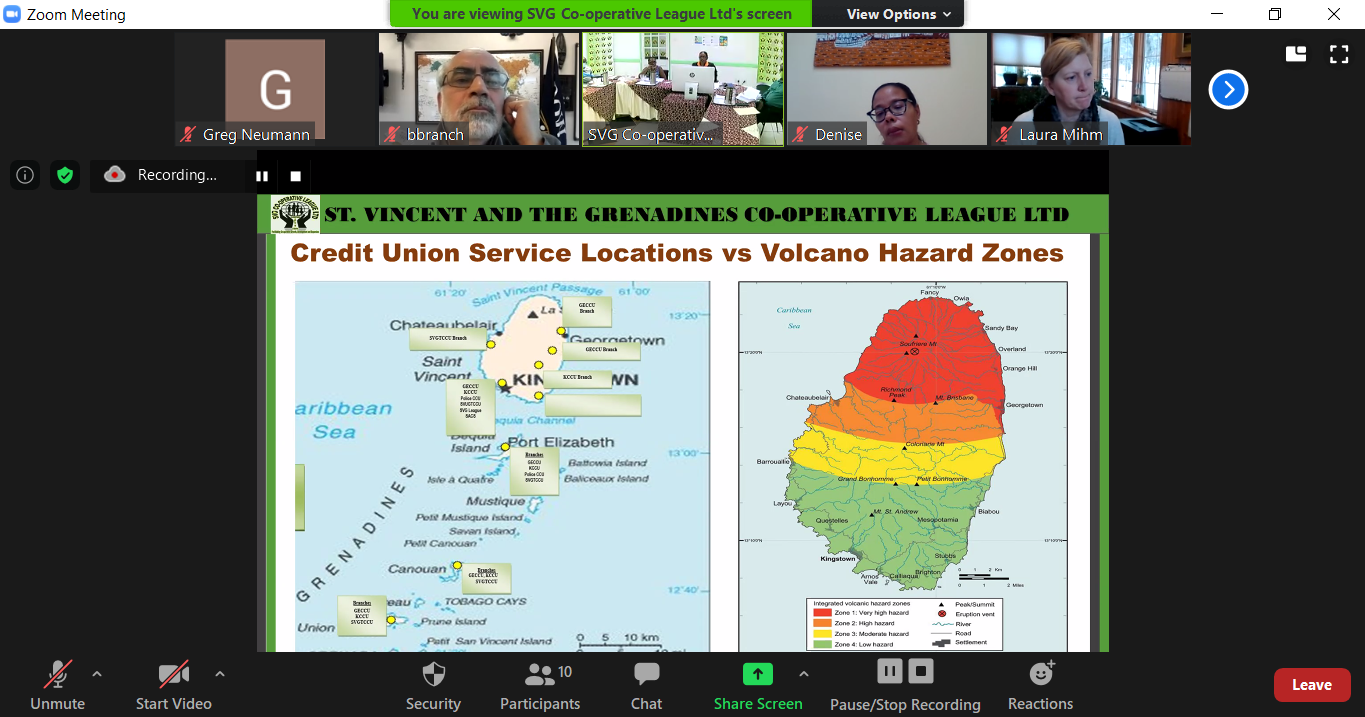COVID-19 Spike, Active Volcano Pose Major Challenges for Credit Unions in St. Vincent and the Grenadines
2021-01-07As a nation comprised of multiple Eastern Caribbean Islands, St. Vincent and the Grenadines had been largely protected from the most serious consequences of the COVID-19 pandemic—not recording its 100th case of the virus until mid-December.
But local transmission of the virus then began to rise sharply, with the positive test rate soaring above 50% by early January.
Then, just as the St. Vincent and Grenadines Cooperative League (SVGCL) and its member credit unions began to react to that new reality—they learned the La Soufrière volcano on St. Vincent has become active for the first time in decades.
"We now find ourselves having to plan for a dual disaster scenario," said SVGCL Manager Angela Bertrand in a January 7 virtual meeting with representatives from World Council, the Caribbean Confederation of Credit Unions (CCCU) and the Hawaii Credit Union League.
The SVGCL and CCCU reached out to World Council for assistance in planning for such a scenario, which could result in catastrophic physical and financial consequences for St. Vincent and the Grenadines' credit unions and their members.
The SVGCL has a lot to lose. In a nation with a population of just over 110,000, SVGCL credit unions serve more than 75,000 members. Bertrand said their fear is that a dual disaster scenario could weaken their movement, which is in a position of strength after decades of work.
To assist the SVGCL with is disaster planning, World Council President and CEO Brian Branch reached out to Hawaii Credit Union League President Dennis Tanimoto, who has planned for and responded to numerous volcanic eruptions.
"Communication will be key, with members of your credit unions, among the credit unions themselves and with your government," said Tanimoto.
To ensure that communication could take place even in the event the islands lost power, Tanimoto recommended the SVGCL purchase the services of a online critical event management platform that would allow for the exchange of news, information and resources to continue.
A loss of power would also result in a loss of digital and automated transaction services, which means the credit unions will need to ensure they have a lot of cash on hand. Tanimoto said island merchants will also be dealing exclusively in cash in that scenario, and recommended SVGCL have its credit unions notify gas stations, grocery stores and other essential businesses that they can assist them with large cash deposits.
Tanimoto and Bertrand also discussed evacuation plans for credit unions in the volcano zone, and plans to keep employees safe from toxic gases associated with volcano eruptions. For their members, Tanimoto recommended SVGCL-affiliated credit unions being plans to offer forbearance for existing and new loans, and to work with government officials on loan guarantees that would allow protection for the credit unions on member defaults.
"I commend the SVGCL for being proactive in disaster preparedness and business continuity. I sincerely hope credit unions and residents of St. Vincent will be spared of damage from the volcanic eruption and any other natural disasters," said Tanimoto.
While the cases of COVID-19 rise, SVGCL officials will continue to monitor the volcano, which could erupt at some point over the next month, or enter another stage of dormancy without erupting.
